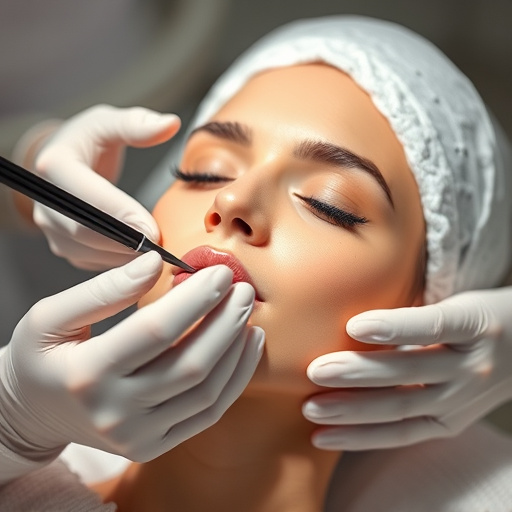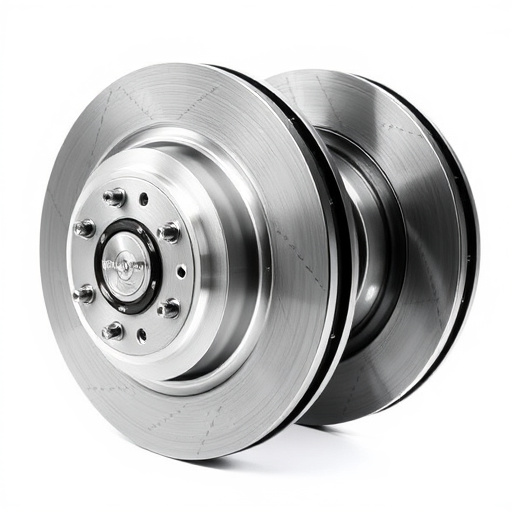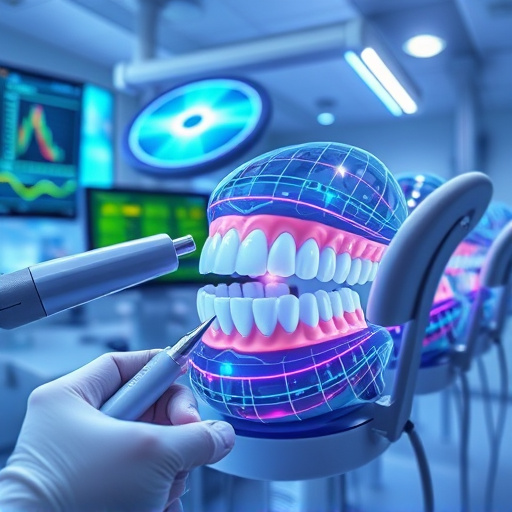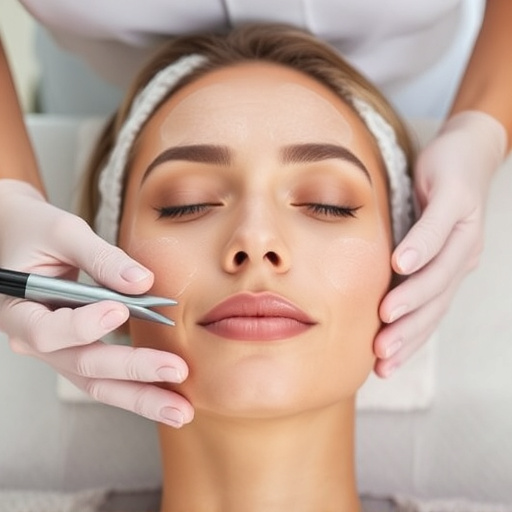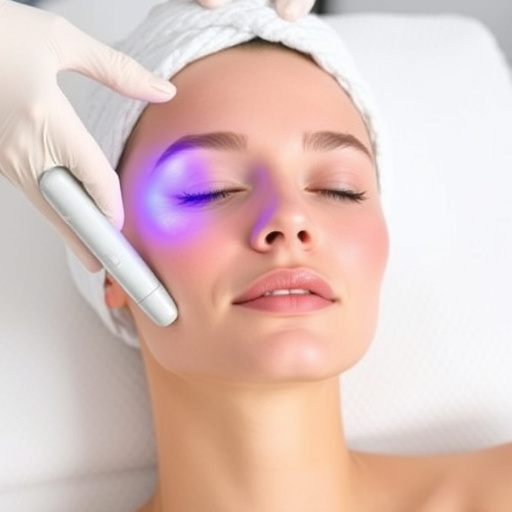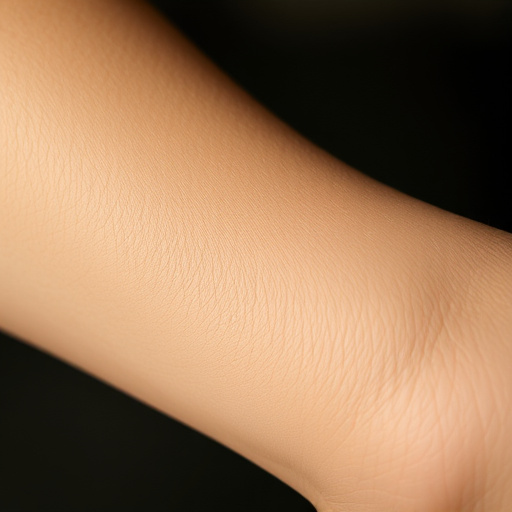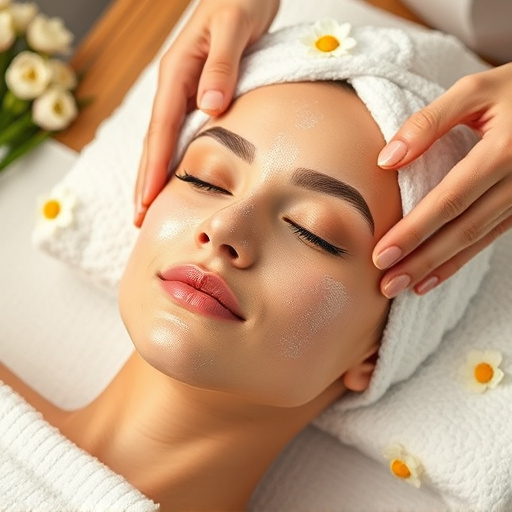Ingrown hair prevention for sensitive skin involves a multi-pronged approach combining at-home care and professional treatments. Key strategies include using gentle products, regular exfoliation with acids, and non-surgical treatments like chemical peels or microdermabrasion. Consulting a dermatologist ensures tailored methods addressing specific needs. Topical solutions, consistent routines, and permanent hair reduction methods further aid prevention.
Ingrown hairs can be a particular concern for those with sensitive skin, causing irritation and discomfort. This article delves into the world of ingrown hair prevention, offering insights tailored for delicate complexions. We explore the causes behind this common issue and provide practical strategies to keep it at bay. From understanding the science behind ingrown hairs to adopting effective skincare routines and discovering soothing topical solutions, these tips empower you to achieve smooth, healthy skin.
- Understanding Ingrown Hair on Sensitive Skin
- Strategies for Effective Ingrown Hair Prevention
- Topical Solutions and Skincare Routine Recommendations
Understanding Ingrown Hair on Sensitive Skin
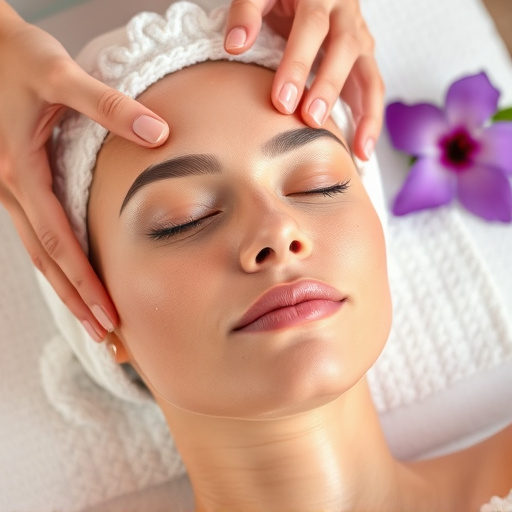
Ingrown hairs on sensitive skin are a common concern, often resulting from various factors like irregular hair removal practices or skin irritation. For those with sensitive skin types, this issue can be more pronounced due to the delicate nature of their complexions. Ingrown hairs typically occur when hair follicles become blocked or inflamed, trapping the hair beneath the skin’s surface. This process can lead to red, irritated patches and even small pustules.
Sensitive skin requires a meticulous approach to ingrown hair prevention. It is crucial to maintain a gentle skincare routine that avoids harsh chemicals and exfoliants that could further irritate the skin. Techniques like microneedling therapy, while effective for some, might not be suitable for all sensitive skin types and should be considered under professional guidance from a medical spa service. Additionally, using appropriate tools for hair removal, such as precise razors or gentle depilatory creams, can help minimize ingrown hairs.
Strategies for Effective Ingrown Hair Prevention

Ingrown hair prevention for sensitive skin types requires a strategic approach that combines at-home care with professional guidance from medical spa services. Start by understanding your skin’s unique needs and choosing gentle, non-irritating products designed for sensitive skin. Regular exfoliation is key; gently buff away dead skin cells to unclog pores and prevent hair from growing back ingrown.
Consider incorporating non-surgical treatments, such as chemical peels or microdermabrasion, into your personalized skincare routine. These procedures help smooth skin texture, remove surface impurities, and promote new cell growth. Always consult a dermatologist or a skilled esthetician to ensure safe and effective ingrown hair prevention tailored to your specific needs.
Topical Solutions and Skincare Routine Recommendations
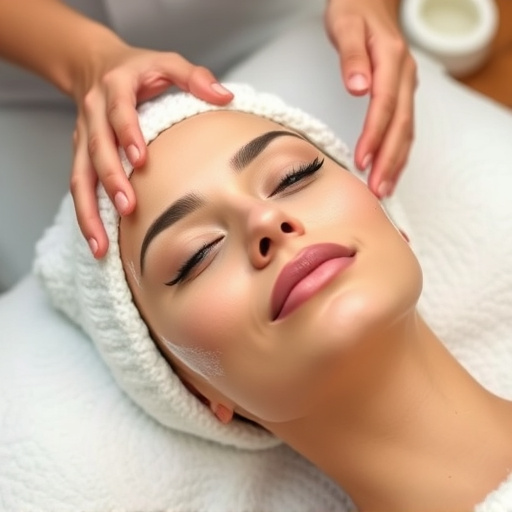
Many individuals with sensitive skin struggle with ingrown hairs due to factors like coarse hair, frequent shaving or waxing, and skin irritation. To prevent this issue, incorporating specific topical solutions into your skincare routine is essential for ingrown hair prevention. Look for products containing ingredients such as salicylic acid or glycolic acid, which help exfoliate the skin and unclog hair follicles. These alpha hydroxy acids (AHAs) gently remove dead skin cells, allowing hair to grow smoothly without trapping itself beneath the surface.
In addition to topical solutions, establishing a consistent skincare routine is vital for maintaining healthy, clear skin. Cleanse your face twice daily with a mild, fragrance-free cleanser suitable for sensitive skin. Moisturize after cleansing to hydrate the skin and prevent dryness, which can exacerbate irritation. Consider using a physical sunscreen during the day to protect against UV rays that may contribute to inflammation. For those seeking more permanent solutions, professional skincare treatments like laser hair removal can be effective in reducing ingrown hairs by targeting the hair follicle itself. Additionally, if acne is a concurrent issue, incorporating appropriate acne treatments into your routine may help alleviate associated skin irritation and promote smoother, softer skin.
For those with sensitive skin, ingrown hair prevention is key to maintaining a healthy and comfortable complexion. By understanding the root causes of this issue and implementing effective strategies, such as regular exfoliation, choosing the right skincare products, and adopting a gentle grooming routine, individuals can successfully prevent ingrown hairs and promote smooth, clear skin. Incorporating topical solutions like salicylic acid or tea tree oil, alongside consistent cleansing and hydration, will further enhance ingrown hair prevention efforts. Remember, a well-carefor sensitive skin type is less prone to ingrown hairs, allowing you to enjoy a confident and comfortable skin experience.




